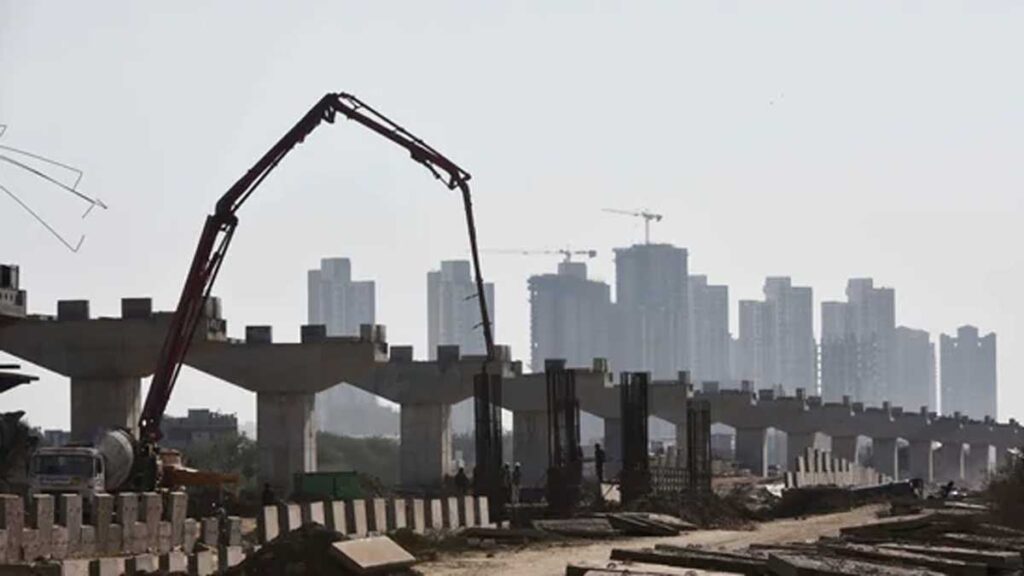As per the revised graded response action plan (GRAP) for the NCR, if the air quality turns “severe” (stage III), authorities will have to enforce a ban on construction and demolition activities in the region

NCR Builders Call for Exemption from Construction Bans
Amid deteriorating air quality in the National Capital Region (NCR), real estate developers are urging the government not to impose a complete ban on construction activities during severe pollution episodes. The revised Graded Response Action Plan (GRAP) for the NCR mandates a ban on construction and demolition when the air quality reaches “severe” (stage III) levels. Developers argue that not all construction activities contribute to pollution and are requesting the government to identify non-polluting tasks that can continue.
Identifying Non-Polluting Construction Work
Harsh V Bansal, convenor of the CII Delhi Sub-committee on Real Estate, Urban Development, and Infrastructure, emphasized that not all construction site activities result in pollution. He suggested that the government identify these non-polluting tasks, allowing work to proceed and ensuring timely project completion. Developers stress that this targeted approach would enable them to maintain project schedules while adhering to pollution control measures.
Impact on Project Timelines and Laborers
Last year, the Real Estate Regulatory Authority of Delhi and the Confederation of Real Estate Developers’ Associations of India (CREDAI)-NCR voiced concerns about the impact of construction bans on project deliveries. According to Manoj Gaur, chairman of CREDAI national and CMD of Gaurs Group, a three-day ban results in a delay of over a month. The situation becomes more challenging when laborers, who travel from different states to work in Delhi NCR, face unemployment due to frequent construction halts, causing delays in apartment deliveries to homebuyers.
Challenges Faced by Daily Wage Workers
The repercussions of construction bans are felt acutely by daily wage workers. Kezya De Bragança, founder & CEO of Bettamint, a construction tech startup, highlighted the cascading impact on these workers’ income. Construction project closures disrupt their earnings, pushing them into a precarious struggle to maintain basic living standards. This emphasizes the urgent need for a balanced approach that considers both environmental concerns and the welfare of laborers.
Supporting the Workforce During Bans
Acknowledging the challenges faced by laborers, leading construction companies in India are providing essential support. They offer housing, food, and financial security to ensure the well-being of their workforce during construction bans. This comprehensive approach aims to mitigate the adverse effects on both project timelines and the livelihoods of the workers involved in the construction industry.








